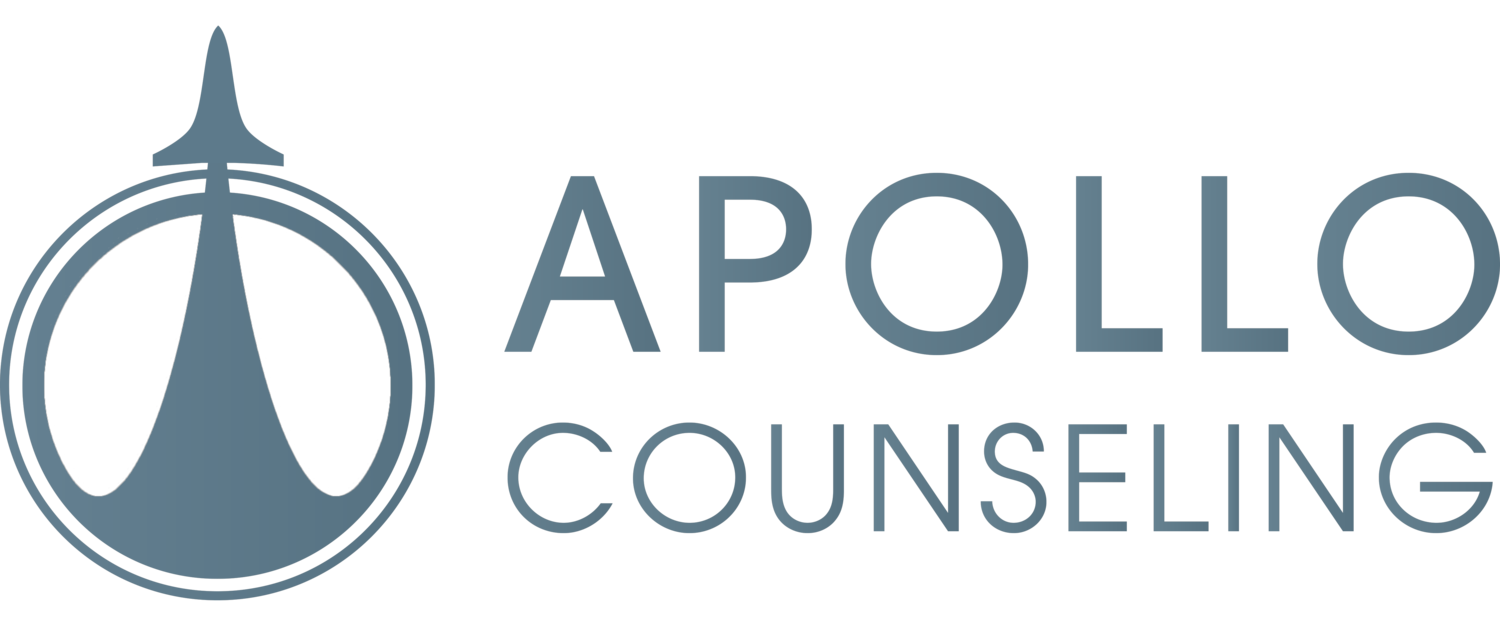When Silence Hurts: Understanding Abuse and its Impact on Mental Health
By: Lindsay Kate Skinner MA, LPC, NCC
It often starts as a feeling, something that doesn’t sit right. You replay conversations in your head, justify the outbursts, the control, the subtle threats. You tell yourself it’s not that bad. You’re strong. You can handle it. Maybe it’s your fault. But over time, the weight grows heavier. The silence gets louder. You stop bringing things up, avoid conflict, and slowly lose pieces of yourself trying to keep the peace. The story of what’s happening hides itself in the background and it is masked by shame, fear, or loyalty.
Talking about abuse feels like unraveling a thread you’ve tried hard to keep stitched in place. At Apollo Counseling, we understand how vulnerable it feels to name what you've been through. Healing begins with giving voice to the parts of your story you’ve been told to keep quiet. We also know that healing begins with naming what you’ve walked through.
A lot of times these conversations begin in my office from the question, “what is abuse?” Abuse is any pattern of behavior used to gain or maintain power and control over another person. It can be physical, emotional, verbal, sexual, spiritual, financial, or through neglect. Abuse often happens in silence and shame, but healing begins with understanding. At Apollo Counseling, we believe that recognizing the effects of abuse is a powerful first step toward healing.
What are the different types of abuse?
Emotional/Psychological: Manipulation, gaslighting, threats, and name-calling. These tactics chip away at self-worth and create confusion and fear.
Physical: Hitting, slapping, restraining, or any use of physical force intended to harm.
Sexual: Unwanted or coerced sexual contact, including assault or violation of boundaries.
Neglect: Especially common in childhood; the failure to provide basic needs like food, safety, and emotional support.
Verbal: Ongoing criticism, yelling, or belittling that causes emotional pain.
Spiritual/Religious: Using belief systems to shame, control, or isolate.
Financial: Controlling access to money or resources, preventing work or independence.
How does Abuse affect mental health?
Abuse doesn’t just leave physical wounds. Abuse imprints itself on the way a person thinks, feels, and moves through the world. Many survivors live in a state of constant fear, unable to fully relax, always scanning for danger or anxious when chaos is absent. Depression can settle in like a fog: a deep numbness, a sense of hopelessness, exhaustion that no amount of rest seems to fix. Some carry the weight of PTSD, reliving moments through intrusive thoughts or emotional flashbacks, struggling with emotional regulation. Others feel a persistent sense of not being enough, questioning their worth or blaming themselves for the abuse they endured. Trust becomes difficult and relationships feel unsafe or confusing. Many people carry guilt and shame that was never theirs to hold when they walk through abuse. These effects are real, and they matter.
How the Brain and Body Respond to Abuse?
Abuse triggers the brain's survival system, often leading to prolonged states of fight, flight, freeze, or fawn. Chronic exposure can alter the brain’s stress response systems, making everyday situations feel overwhelming. This also impacts physical health, sleep, memory, and emotional regulation.
What about Healing?
For many, the path to healing from abuse is not a straight line. It’s often blocked by fear, shame, or a deeply ingrained sense of loyalty to the person who caused harm. Survivors may carry guilt or believe the abuse was somehow their fault. Others may simply not know where to turn or lack access to the support they need.
But healing is possible and it doesn’t have to happen alone. Therapy that is trauma-informed, such as CBT, EMDR, or inner child work, can offer powerful tools for understanding and recovery. Building a network of safe, supportive relationships matters, too. Sometimes healing starts with creating a safety plan, learning to set boundaries, or rediscovering a sense of self-worth that was lost in the aftermath. Recovery is about reclaiming your life, step by step, with support along the way.
A Message from Apollo Counseling- Abuse leaves lasting wounds, but healing is possible. You are not alone, and your story matters. Our counselors are here to walk with you whether you’re navigating trauma, recovering from past pain, or learning to trust again. If this resonates with you or someone you love, we invite you to reach out. Apollo Counseling offers confidential support for those ready to take a step toward healing.
Meet the Author
Lindsay Kate Skinner is a dedicated professional at Apollo Counseling, where she combines her expertise in mental health with a genuine passion for supporting individuals on their journeys to well-being. Her approach emphasizes empathy and understanding, creating a safe space for clients to explore their thoughts and feelings. Lindsay Kate is committed to empowering those she works with, helping them to develop resilience and coping strategies that promote personal growth and healing. With a focus on holistic care, she strives to guide her clients toward achieving their goals and finding balance in their lives. Get Connected!


